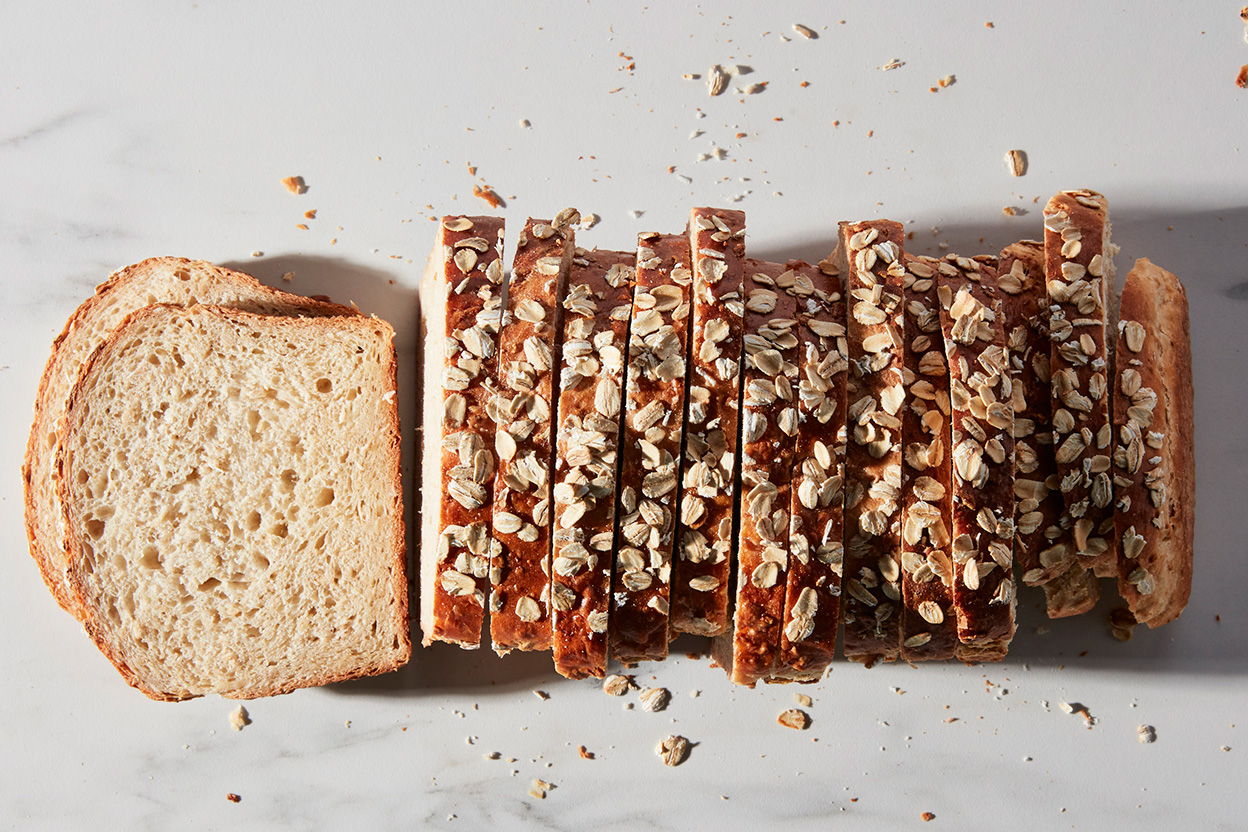That sounds like a lot of water for the amount of other ingredients, and, while the overnight rise helps the grains absorb as much as they can, if it's supposed to be a dough, not a batter, add more flour! But don't just add it until it won't stick to your hands, if kneading - especially with whole grain flours - as the finished product will be dry. I learned this early on (before I had a mixer with a dough hook!), and realized that for that rye bread I've always loved, I had to leave it wet, and I would just scrape the sticky mess off one hand and the table with a dough scraper, and knead more, and scrape. Also, when adding whole grain flours, remember that it absorbs the water slowly - if you add it quickly, until it's not sticky, it will really get dry, as it keeps absorbing more as it sits.
And, though your recipe didn't have any, something you might want to add is a little oil - I would do about 3 tb for that much dough. While some bread has no oil, like French bread or ciabatta, bread dries out very fast, w/o oil, esp. whole grain breads. As for the sugar, if you add any sugar, honey, agave, or molasses, don't add much for the overnight (or longer, for more flavor, but that's another topic!) rise - the flavor will develop better with the yeast fermenting by breaking down the flours. I always add molasses on bake day, in multi-day breads. The sugar, whatever type you'll use, will give a boost to the dough the next day, plus another layer of flavor, as well as helping to brown the bread.
As for that yeast, if making something with an overnight rise, you don't have to proof it, even when using active dry (unless using old yeast, and you really have to proof it - where that term originated). But to help, even with instant yeast, stir the "sponge" a couple of times, maybe 15 min apart, just to separate the granules of yeast.
As for that "hydration" concept, bread baking is not an exact science, though some will tell you that if you don't weigh things out, it won't come out right. Problem with that is that 1 c of flour in a very humid area will weigh a little more, than in an area with a very dry environment. And not only that, but that moist flour will absorb less water, in the dough, while the same weight of dry flour (more in volume) will absorb even more. When making those very wet doughs in a mixer, like ciabatta, you can weigh it out, and forget about it, as that won't matter much, with all that water in it. But the dryer breads you'll develop a feel for, adding enough flour, but leaving it somewhat wet, so it won't be dry in the end.
As for flavor, something I add frequently, partly because I love rye bread, but I also add to other breads, are seeds - caraway, dill, nigella, sesame, as well as some others, as well. You'll find some favorites, eventually.
Good luck, and keep baking!

